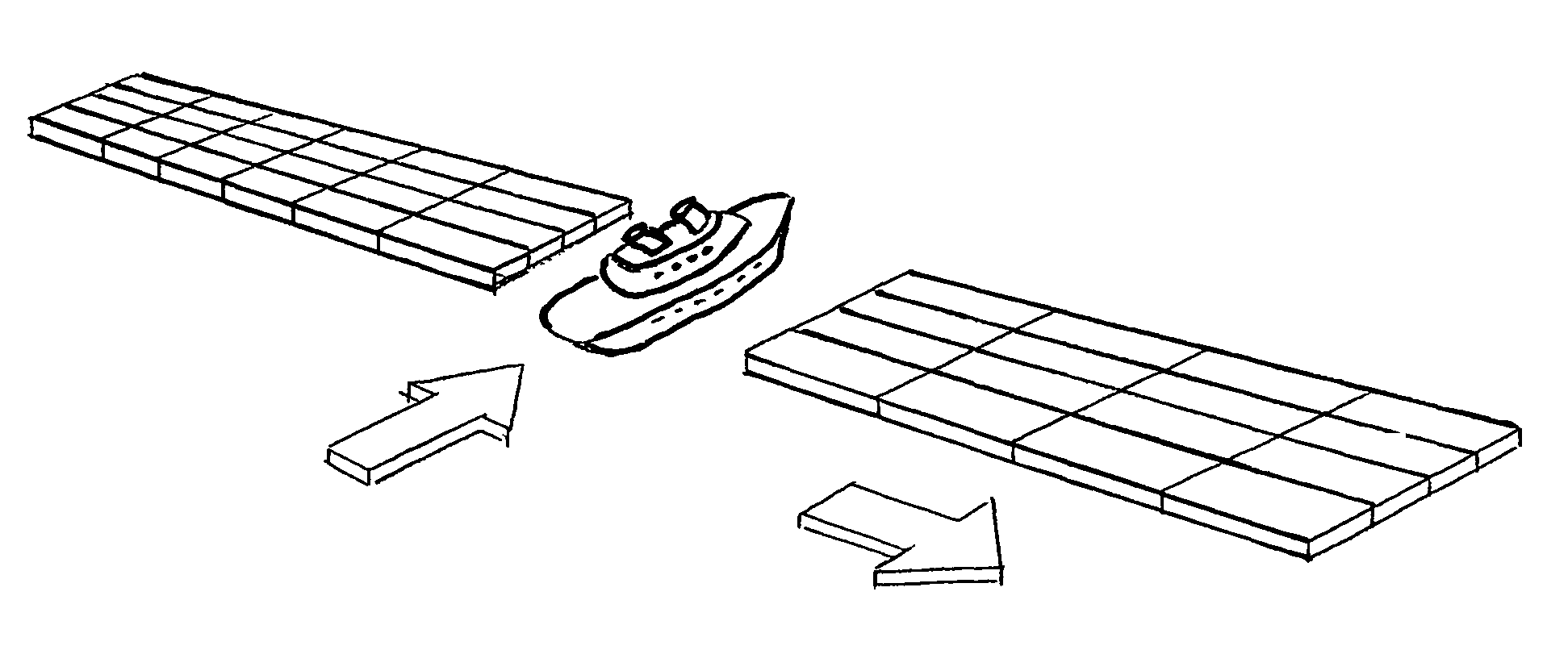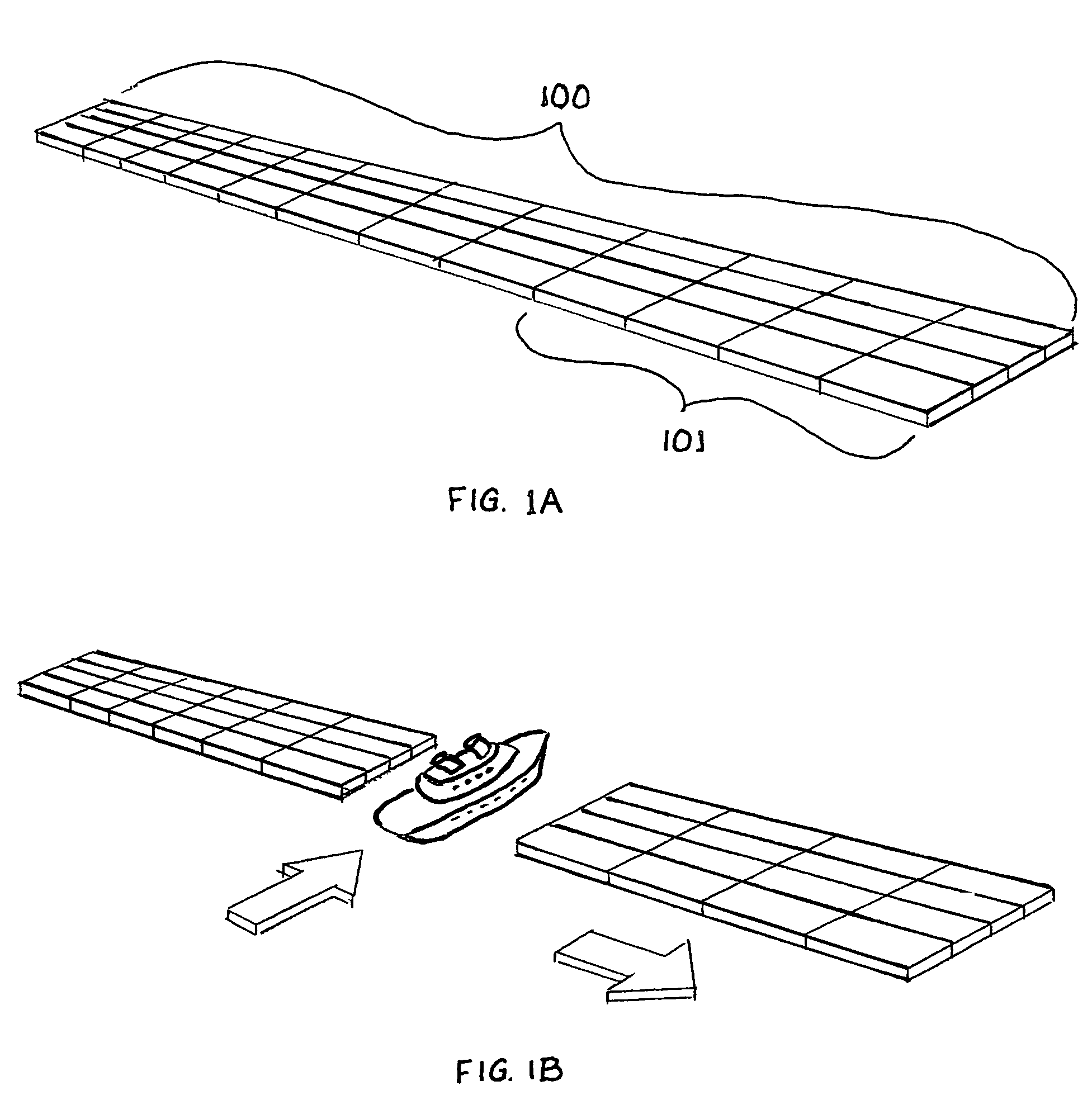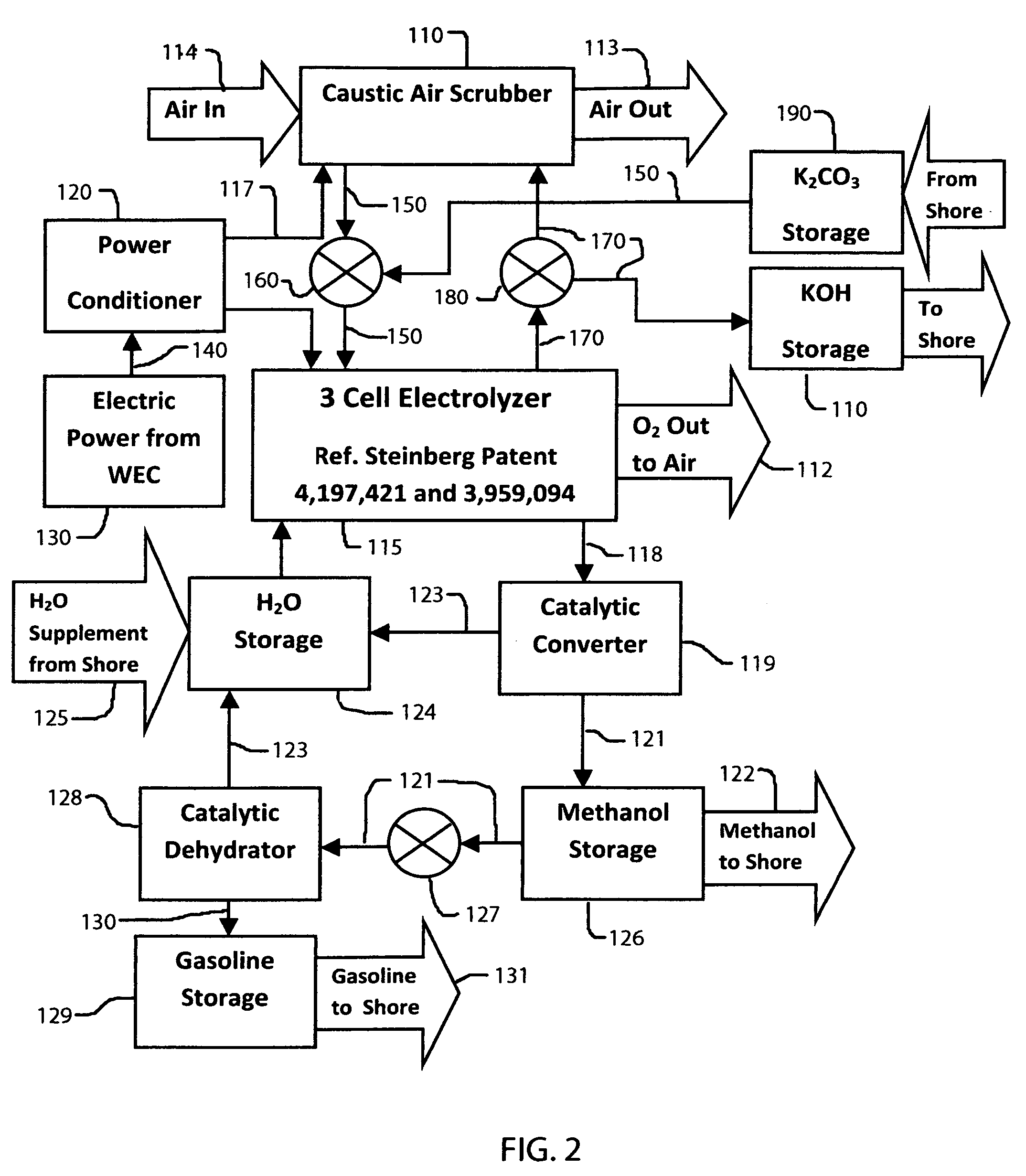Method and apparatus for ocean energy conversion, storage and transportation to shore-based distribution centers
a technology of ocean energy and method, applied in mechanical equipment, machines/engines, electric generator control, etc., can solve the problems of inability to produce substantial alternate energy fuels or transportation to remote markets without use, devices that are mechanically complex and unsuited to efficiently couple energy, and are restricted to coastal locations with less potential energy
- Summary
- Abstract
- Description
- Claims
- Application Information
AI Technical Summary
Benefits of technology
Problems solved by technology
Method used
Image
Examples
Embodiment Construction
[0182]A number of alternate means of meeting the functional goals have been presented in the description of this invention. The preferred embodiments for each major apparatus or process are offered as follows:
System Energy Storage Medium, FIG. 2
[0183]Molecular hydrogen (H2) is the energy storage medium chosen as the embodiment of choice as opposed to that of electrical energy stored in ultracapacitors or hybrid ultracapacitor / batteries.
[0184]The approach to the production of H2 may be performed by the electrolysis of make-up water from shore facilities such as river water or from municipal sources, or by desalinating sea water. Make-up water from shore facilities is the preferred source of H2.
[0185]Methanol was chosen as the basic medium for storing H2 as opposed to a higher hydrocarbon form.
[0186]Sequestered CO2 recovered from the atmosphere, Potassium Carbonate (K2CO3) is the primary source of CO2 with a secondary source of sequestered CO2 from shore side industrial plants where e...
PUM
 Login to View More
Login to View More Abstract
Description
Claims
Application Information
 Login to View More
Login to View More - R&D
- Intellectual Property
- Life Sciences
- Materials
- Tech Scout
- Unparalleled Data Quality
- Higher Quality Content
- 60% Fewer Hallucinations
Browse by: Latest US Patents, China's latest patents, Technical Efficacy Thesaurus, Application Domain, Technology Topic, Popular Technical Reports.
© 2025 PatSnap. All rights reserved.Legal|Privacy policy|Modern Slavery Act Transparency Statement|Sitemap|About US| Contact US: help@patsnap.com



